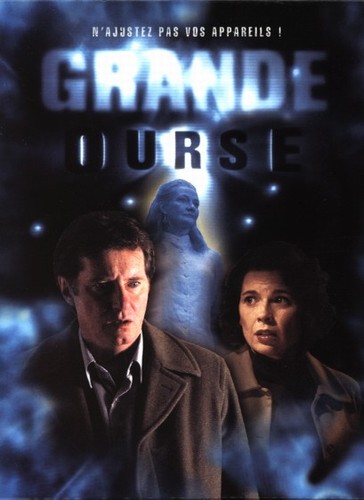
Six connected French films (with English subtitles); director of photography, Andre Turpin; edited by Richard Comeau; music by Michael A. Smith; production design by Pierre Allard; produced by Roger Frappier.
THE TECHNETIUM, written and directed by Denis Villeneuve.
AURORE AND CREPUSCULE, written and directed by Jennifer Alleyn.
COSMOS AND AGRICULTURE, written and directed by Arto Paragamian.
BOOST, written and directed by Manon Briand.
JULES AND FANNY, written and directed by Andre Turpin.
THE INDIVIDUAL, directed by Marie-Julie Dallaire and written by Ms. Dallaire and Sebastien Joannette.
A scruffily handsome young filmmaker (David La Haye) walks into a Montreal coffee place and downs one espresso after another while madly scribbling words (''cinema, hostages, Cambodia, time dragging'') in his notebook. Later we learn that he's almost unbearably nervous about going on a television talk show to discuss his film.
His anxiety turns out to be justified. The television studio is as loud and frantic as a 1970's disco. The filmmaker's name is Morille, but everyone keeps calling him Maurice. The producers promise Morille ''an in-depth two-minute interview,'' tell him how lucky he is to be following a group called the Cyberdogs (''from garage band to megaband in a week,'' the pretty, fast-talking host reports) and insist that the show's hairdresser, Tekno, give him a new look. This all prompts Morille to freak out, grab Tekno's razor on camera, take the host hostage and threaten to shave her head.
''The Technetium,'' written and directed by Denis Villeneuve, is one of six stories that make up ''Cosmos,'' a skillful, satisfying black-and-white Canadian film with classic art-house style. Rather than six short films, however, ''Cosmos'' is one film with multiple stories, which come and go and make connections like subplots in a television drama series.
In ''The Individual,'' directed by Marie-Julie Dallaire and written by Ms. Dallaire and Sebastien Joannette, a quiet, somehow ominous young man carries a street-florist bouquet wrapped in plastic everywhere he goes. Whenever a woman walks out of camera range, while the man is browsing in a women's clothing store or apartment hunting, the audience fears for her safety. Eventually a radio news program explains why.
In Andre Turpin's ''Jules and Fanny,'' a young man in a hotel lobby is obsessed with two possibilities: that he is living in ''the age of the death of matter'' and that he'll be allowed a glimpse of his old girlfriend's new breasts. He (Alexis Martin) has a nude scene; she (Marie-France Lambert) doesn't. Mr. Turpin is also the cinematographer of ''Cosmos,'' which is a very good-looking film.
In Manon Briand's ''Boost,'' a young woman with borrowed-car trouble is determined to cheer up a friend who has a clinic appointment that day to find out, finally, whether he's H.I.V.-positive or negative.
In Jennifer Alleyn's ''Aurore and Crepuscule,'' a ripely beautiful young woman, stood up on her 20th birthday, meets a gracious, much older man outside a movie theater and spends an enchanting evening of billiards, foot massage and cross-generational admiration with him.
Finally, in Arto Paragamian's ''Cosmos and Agriculture,'' the taxi driver who has four of those characters as passengers (and helps a fifth with jumper cables) in the course of a workday, eventually has his own problems. Unfortunately, this, the final segment, deteriorates into a silly car chase.
''Cosmos'' is more cerebral than that overall, and its questions are often answered symbolically rather than directly. Yannie (Marie-Helene Montpetit), waiting outside the AIDS clinic for Joel (Pascal Contamine), starts playing with the windshield wipers, even though the car battery failed earlier in the day. Whether or not the car goes dead again seems powerfully significant.
IMDB




